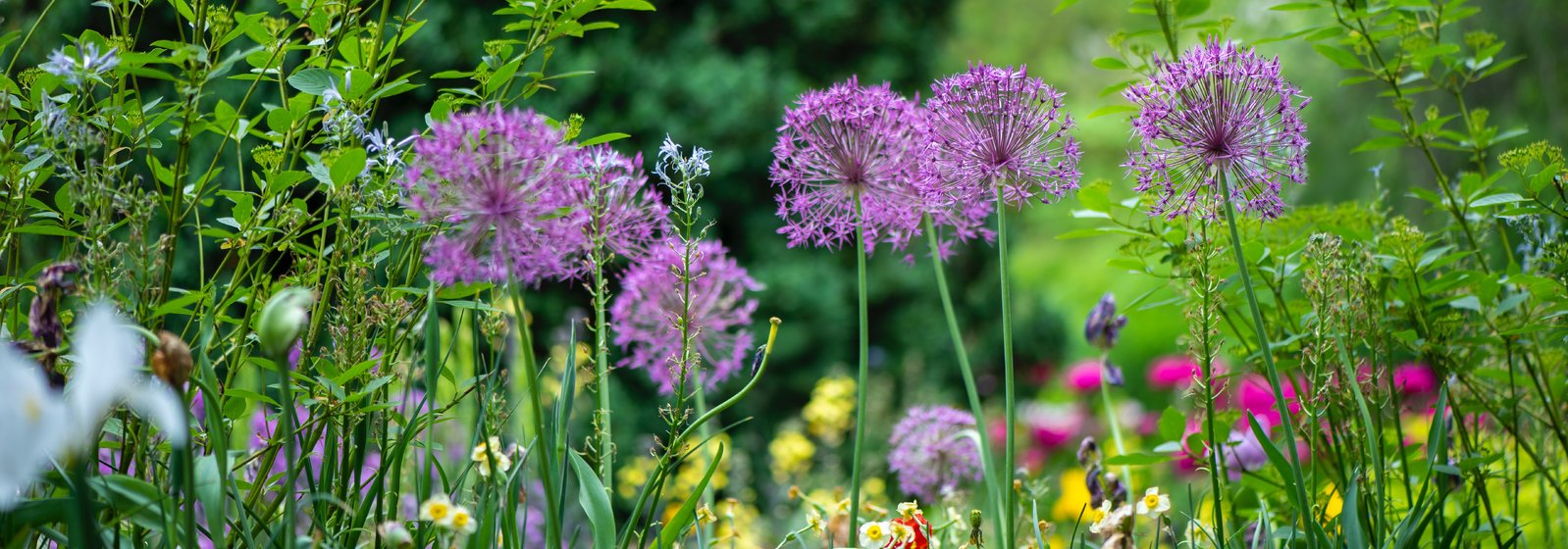
This month, the houseplant of the month is Calla Lily. For sheer head-turning glamour, it’s hard to beat calla lilies. With their elegantly curved flowers in colours from deepest purple to blazing orange, they’re a spectacular addition to the summer garden or conservatory. Here’s how to grow and care for a calla lily.
About calla lilies
Calla lilies (Zantedeschia) are native to South Africa. They’re related to arum lilies, but unlike arum lilies, which can cope with temperatures down to -5ºC (23ºF), calla lilies need a frost-free environment. They’re grown from tubers, and do best in well-drained soil in sun, but with shelter from hot afternoon sun which can burn the leaves. Indoors, grow them in bright but indirect light.
NB: Calla lilies are toxic to cats and dogs.
How to grow a calla lily
The simplest way to grow calla lilies is to plant the tubers in pots indoors in early spring and move the plants outside in summer. The tubers can also be planted directly in the ground outdoors after all danger of frost is past.
How to plant calla lily tubers in pots
- Choose pots with good drainage holes and fill with free-draining multipurpose compost.
- Plant one tuber per pot, with ‘eyes’ (the small bumps visible on the surface of the tuber) facing upwards.
- Water the pots and place in a warm environment, around 20ºC (68ºF)
- After 3-4 weeks, shoots should appear. Roots may also be visible, but these will gradually work down into the soil.
- Once the shoots have appeared, move the pots into a bright environment. Water sparingly, increasing in frequency as the shoots grow.
- In summer, the plants can either be placed outside in their pots or planted out.
How to care for calla lilies
In spring, feed calla lilies fortnightly with a high-nitrogen feed. Once they start to flower, switch to a high-potash feed such as tomato feed. Getting the watering right is key to growing calla lilies, especially if you’re growing them in pots. Overwatering can rot the tubers, so let the compost almost dry out between waterings, and water in the morning rather than evening so that the roots don’t sit in wet compost overnight. Leaves turning yellow or dropping in summer is a sign of overwatering.
Calla lilies winter care
In autumn, after calla lilies have finished flowering, the leaves will turn yellow and die back. Cut the plants down to the ground, then dig up the tubers and place them in a greenhouse or on a warm, sunny windowsill to dry. When dry, wrap the tubers in newspaper and store them somewhere cool and dark over winter. For indoor-grown calla lilies, remove any brown leaves and keep the plant at a minimum temperature of 10ºC (50ºF). Water less frequently in winter.
We have a wide range of sensational plants for summer colour, so visit us soon to brighten up your garden this year.

